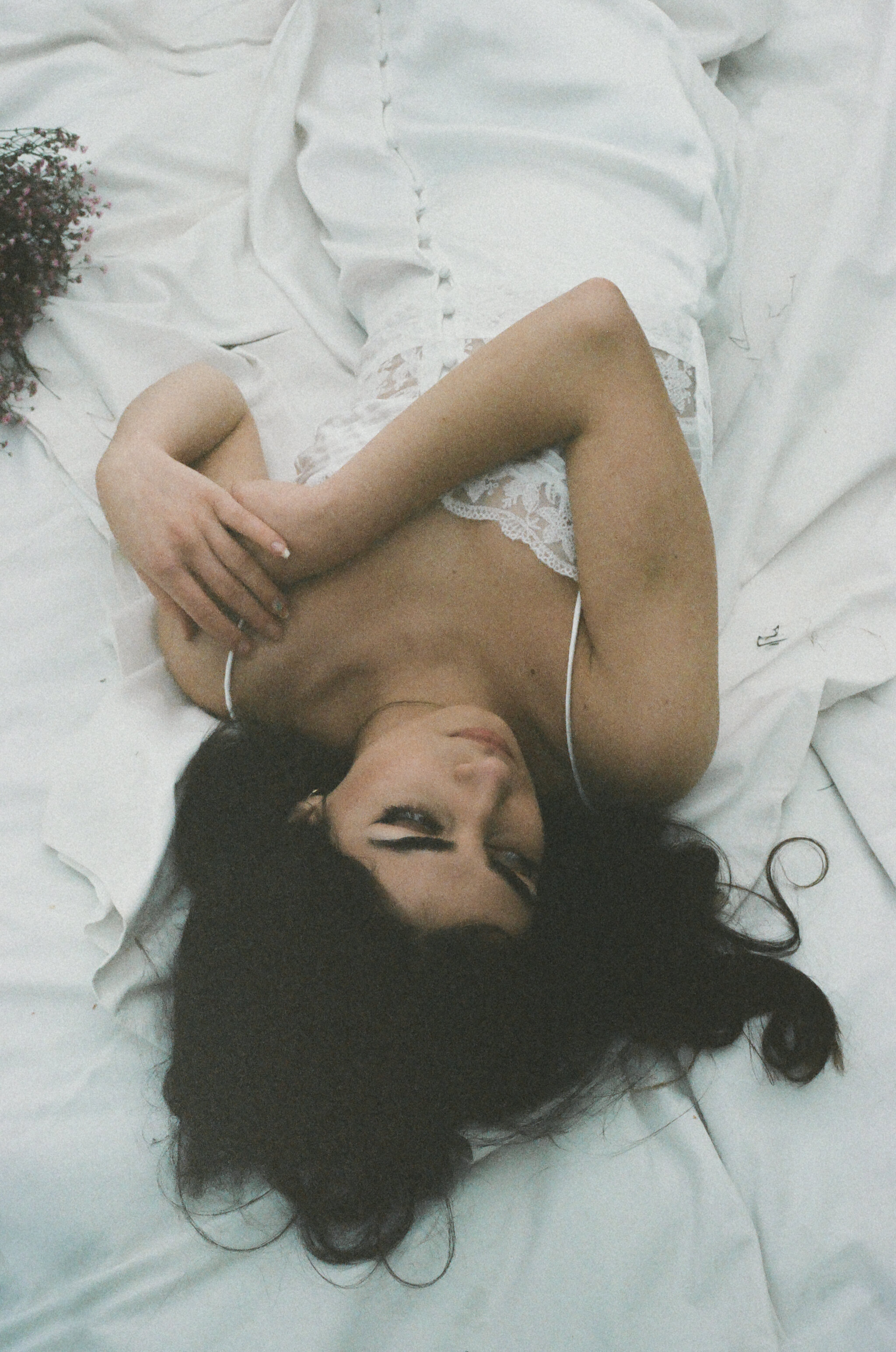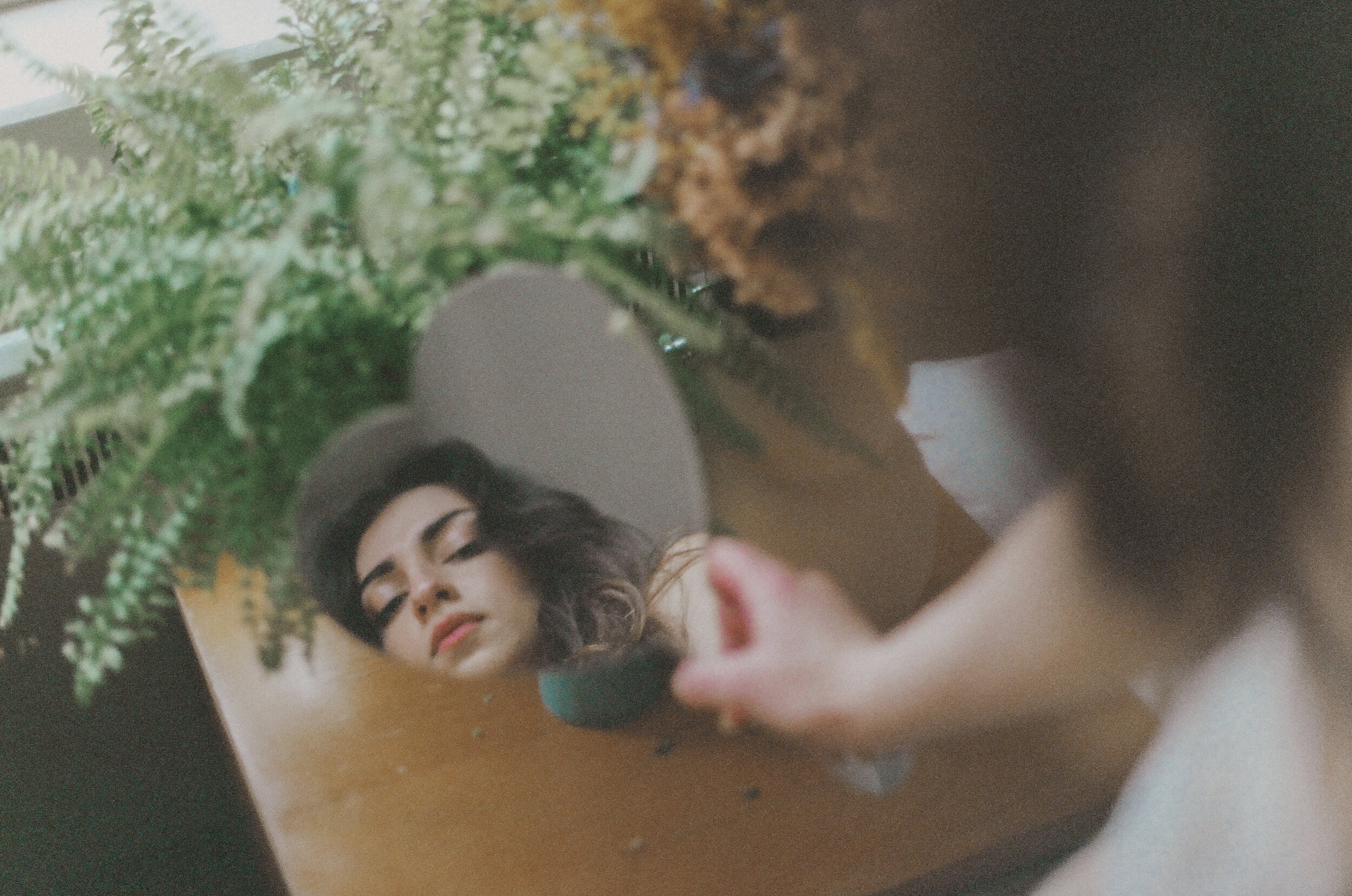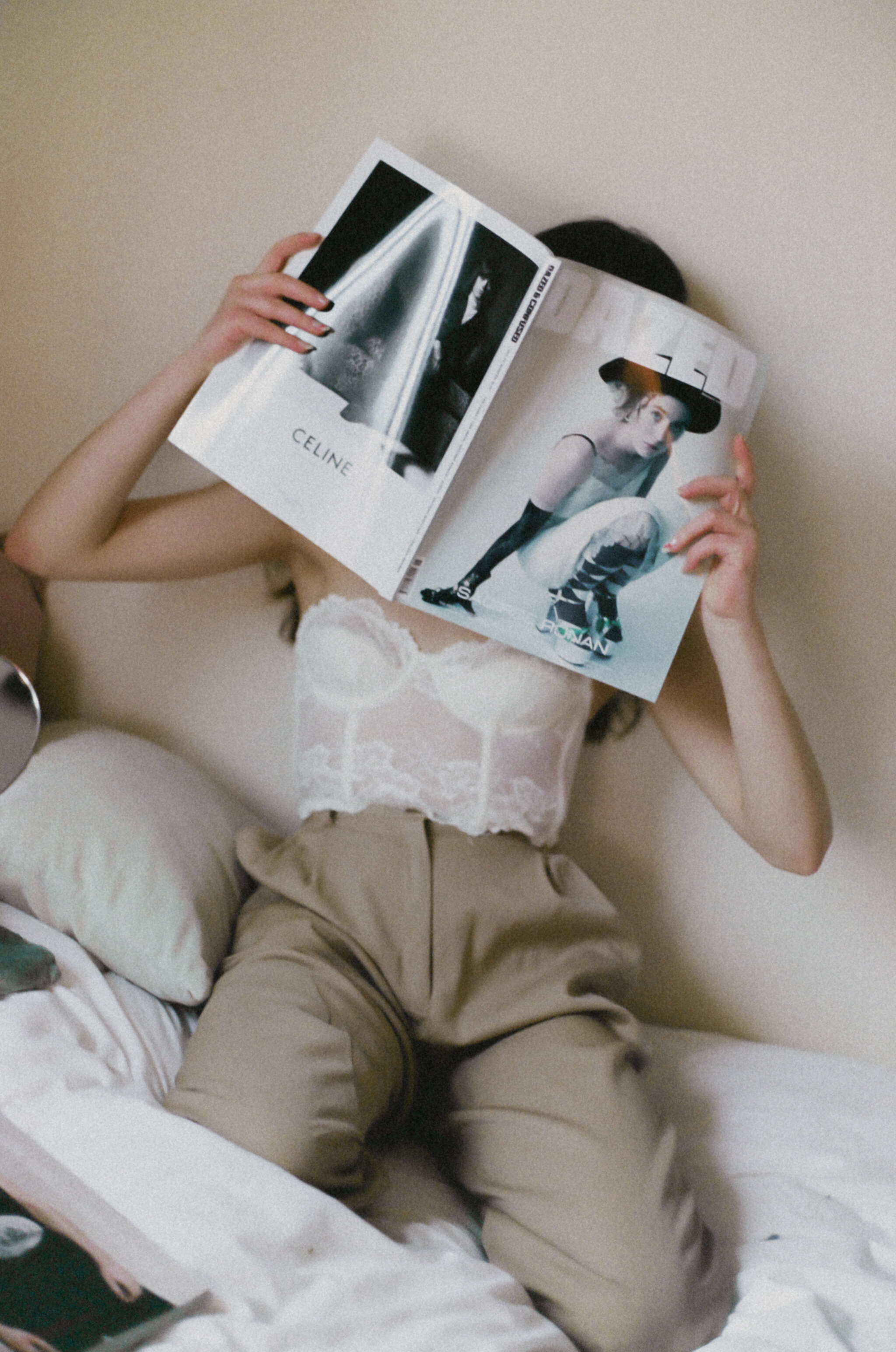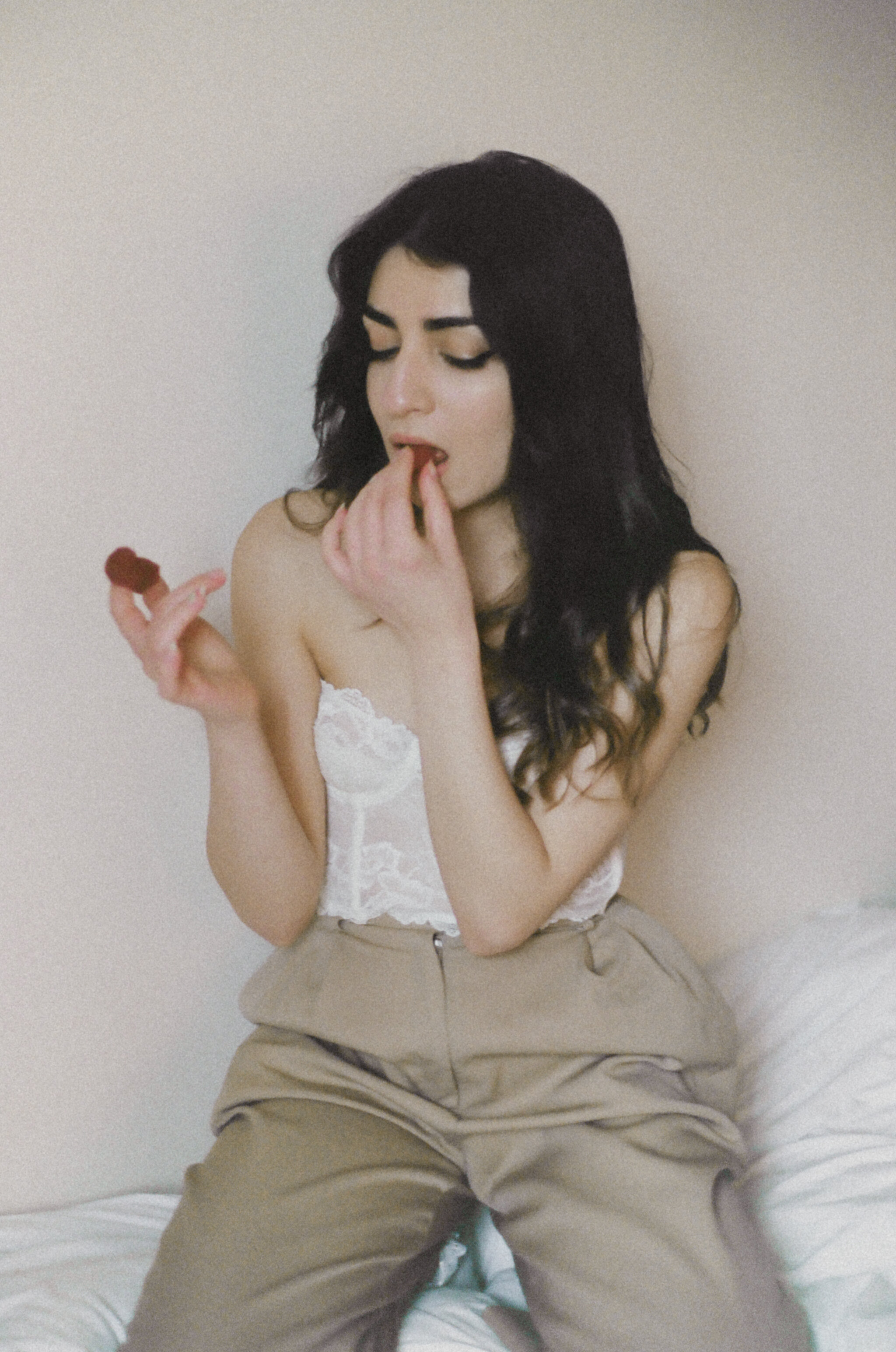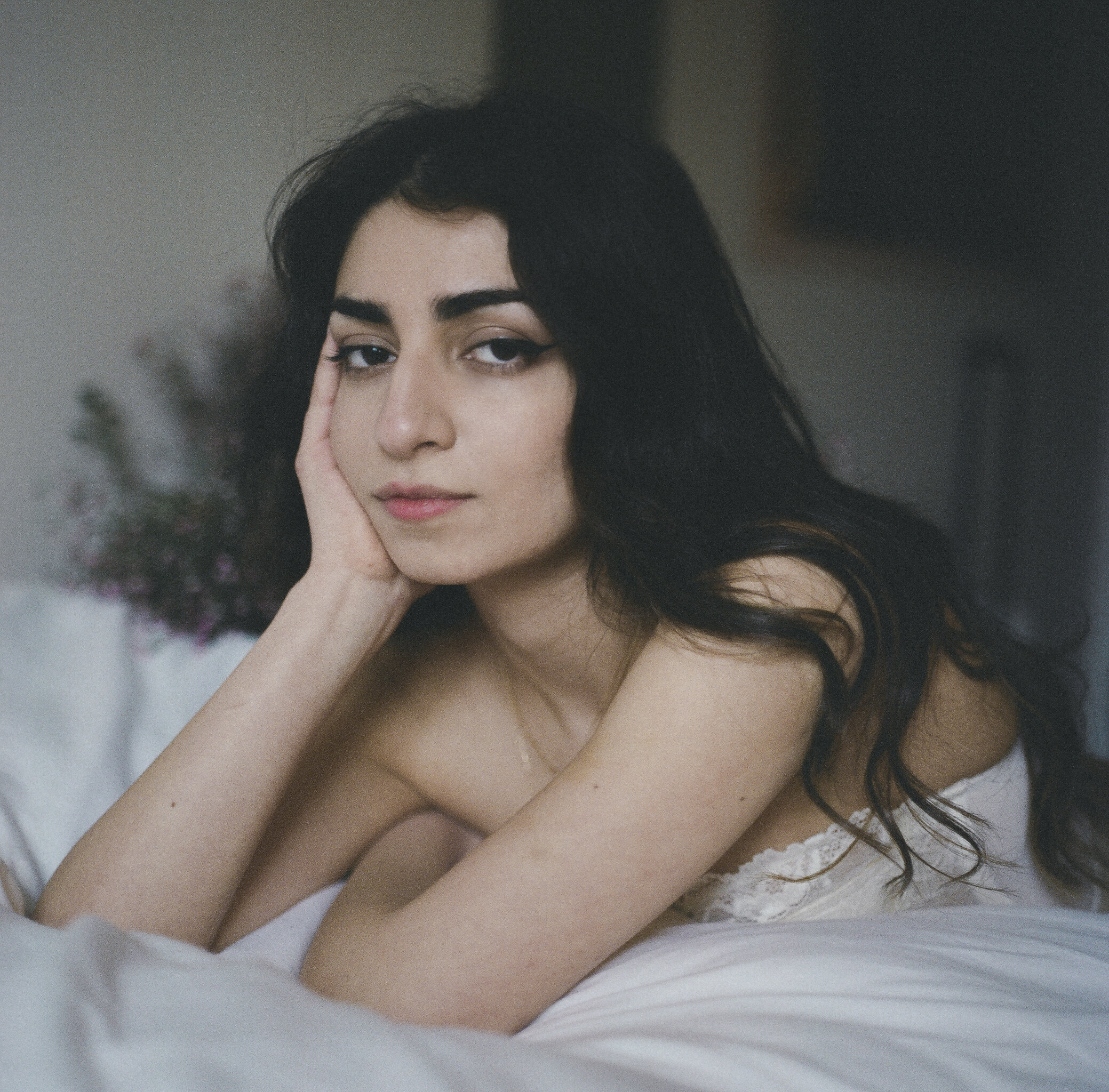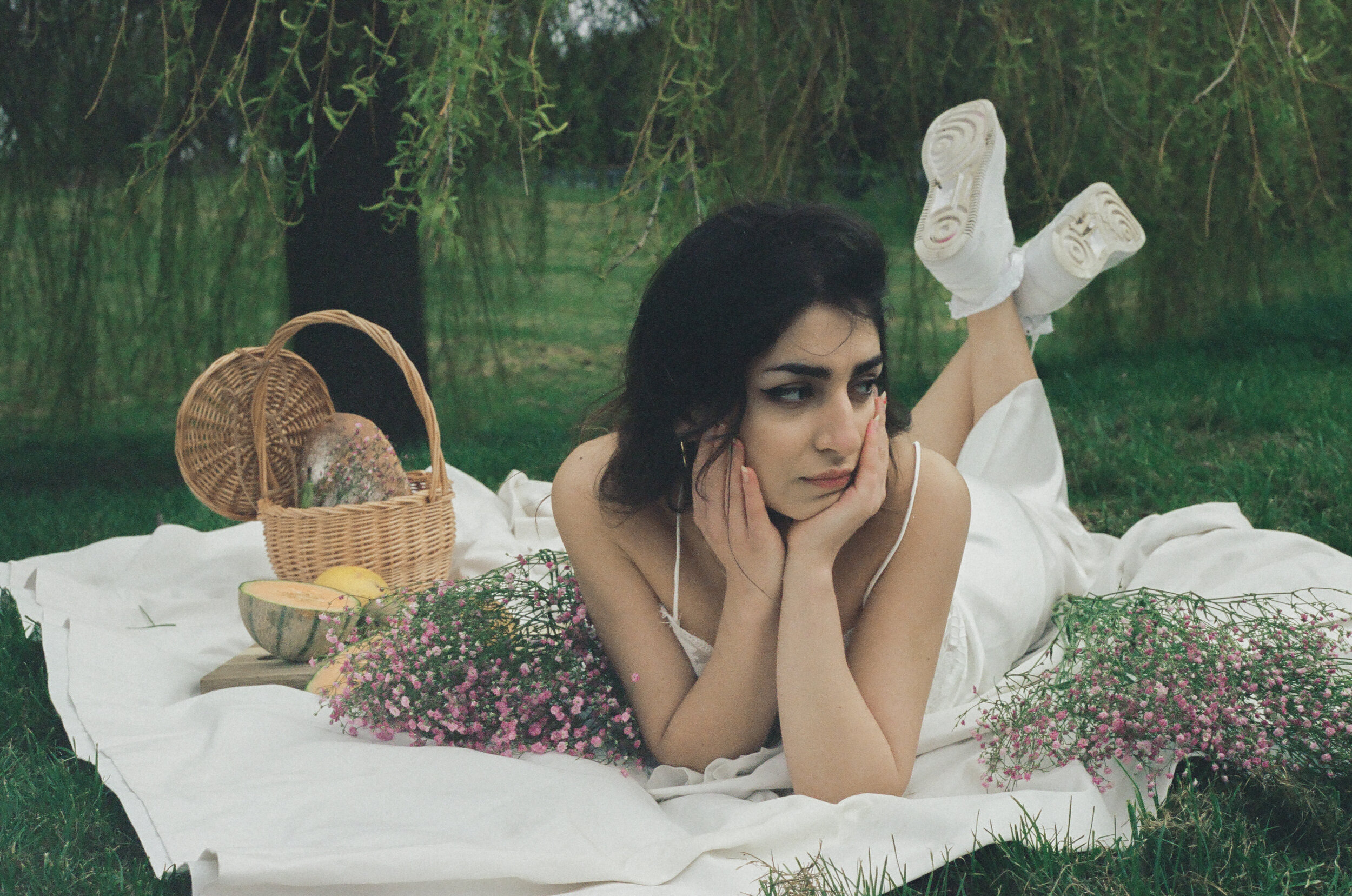An Interview with Sayna Fardaraghi
By Mariel Wiley, featuring filmmaker Sayna Fararaghi
The gloomy London skies are no match for the fiery, cheerful soul that is Sayna Fardaraghi. After weeks of us throwing together delightfully floral mood boards in preparation of the photographs I’d take of her, I’m excited to finally meet Sayna. The day of our interview has finally arrived, and she greets me at the entrance of the University of Westminster with bubbly conversation. Once out of the rain, she immediately offers me lunch that she made herself, proving to be just as wonderful of a host as she is as a person. I had been following her work for a while before I decided to reach out to her, curious to learn what makes her creative genius tick -- and what her journey as a filmmaker has been like so far. And I was not disappointed: artistry and pure love for what she does pours from her like radiant sunlight. Her repertoire of short films are bathed in sunlight and soft pastels, and carry the influence of the likes of Wes Anderson, Petra Collins, and Bardia Zeinali.
Mariel: Nobody decides they want to be a filmmaker out of nowhere, right? It’s an industry that requires insane dedication and passion. So what are your earliest memories of film that left a lasting impact on you?
Sayna: When I was really little, movies were still just movies to me; things you’d watch just because. It wasn’t until a bit later when the impact of watching The Secret Life of Walter Mitty made me realize that film could be a really interesting art form as a medium. I had been doing mostly illustration work at school, but The Secret Life got me interested in looking into film as a creative practice, and learning about what goes on behind the scenes.
M: So this was kind of the first push into this passion for you.
S: Yeah, I guess what really made me want to pursue film -- I feel like everyone says this, but -- La La Land really got to me, I think because I saw the characters like Mia sacrificing everything to pursue her dreams.
M: Passion for your craft is a lot like being in love, and it’s powerful that Mia’s story of choosing love of her career over love of someone else is such an inspiration to you.
S: It becomes a part of you I guess, it’s a really euphoric feeling. I remember coming out of the cinema, tearing up with my friends, really crying, but all the while knowing that this is what I want to do, 100%.
M: I know that feeling all too well. But I also know that discovering your passion is only half the battle. What was it like implementing this passion into your plans for education and work? Did you experience any resistance in pursuing this -- either internal or external?
S: My parents told me that I’d have their support in whatever I chose to pursue, but I did want to make sure I’d be able to support myself financially in the future. There’s that fear there because the film industry is so big and can be difficult to find your way in. But at the same time, what I did -- and I recommend other people to do this as well -- is really research the industry, because a lot of people go into it with their sights set too high and broad. You need to find your little subcategory where your strengths lie, and for me that was editorial filmmaking.
M: How does editorial filmmaking differ from just trying to jump into feature film production?
S: A feature is so much larger of a scope that needs a massive budget and team, whereas editorial films are made with smaller in-house magazine teams. For me, coming from an art background, editorial filmmaking gives you the freedom to work on wackier, more experimental projects, which is nice.
M: You’re the type of person who’s interested in so many different aspects of creating. Have you ever found it difficult to narrow down what mediums you pursue?
S: When I was in college (American high school), I was so in love with graphics, fine art, and film that I couldn’t bear to choose between them. But what I’ve found is that as you make your way into creative industries, every different ability merges into one expansive skill set that you can utilize. One of my teachers told me that you don’t have to be just a director or just an artist, you can use your abilities to build an interdisciplinary career for yourself. A lot of people think that you need to fit yourself in a neat box creatively, but you really don’t, that’s silly!
M: So it can’t hurt to actively build your knowledge and ability with whatever mediums you love! On the subject of knowledge, how has your formal education in a film program helped you develop as a creator?
S: School has really helped me advance my technical knowledge, but I think most of my theoretical development has come from my own research into preexisting works that I learn from to create my own style. But being in the film school has been so important in giving me access to the studio tools I use to create. However, if you’re not able to attend film school, that shouldn’t stop you from pursuing this career. At the end of the day, the creative vision comes from you, it’s not something that they can teach in a classroom.
M: You’ve also recently started an internship with DAZED media. What was that application process like for you?
S: Our school is really great about directing us towards internships that align with our studies, so when I saw the notification for this one pop up, I knew I had to apply to it immediately because working for DAZED would be a dream. I took every step of the application process to the next level, like making sure my CV and cover letter were as perfect and editorial as possible. I designed them myself, meaning that they also showcased my personal style and creative ability. This comes across so much stronger to people hiring than just a blank sheet.
M: Working for DAZED at just age 21! To a lot of people it must seem like you’re really making great strides in your career, but do you ever still feel doubt that you’re not as far along as you should be?
S: I think everyone wishes they were a couple steps further, but when I look back at the things I’ve been achieving -- even the little personal things -- I realize that I’m going at a steady pace and I’m right where I should be. Things take time, and I have to remind myself that 21 isn’t that old! I make sure to set achievable goals for myself to keep myself moving forward.
M: I feel like there’s no better time for young filmmakers -- especially women -- to be finding their paths right now since Hollywood is in turmoil getting rid of old methods and people that aren’t right anymore. Do you agree that this is a perfect time for us to be entering the industry to change it for the better?
S: It’s still a mess, and I’m honestly still terrified that as an industry it still shuts out so many minorities. But I think the way to do it is to come together and support each other as we enter this career. We need to support and uplift each other as artists -- that’s how the best art is made.
M: I know you don’t like to plan your life too far in advance, but where do you want to be in ten years time?
S: I’d love to continue living in London or New York, and hopefully I’ll have established myself in editorial filmmaking. And maybe I’ll even start branching out into feature filmmaking…
M: I’ll be impatiently waiting for that first full length feature! In the meantime, what impact do you want your short films to have on viewers?
S: I want people to be reminded of childhood memories, of nostalgia and euphoria. Something that people can connect to even if they haven’t experienced it themselves. I want to show people that it’s important to be happy and pursue what you absolutely love to do. I’m inspired by my travels and the connections between people. We exchange so much of ourselves and our stories with strangers even if we never learn their names. If you have an idea and a camera, just start shooting! The way you learn and grow the most is by just continuing to play and produce -- you never know what wonderful places it might take you.





